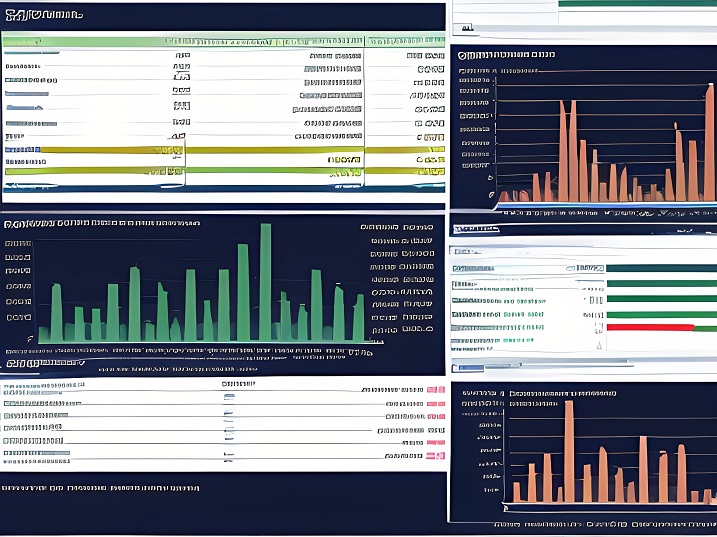IT Manager: The transformative power of enterprise informatization
In this digital and intelligent era, enterprise informatization has become an inevitable trend in enterprise development. They are the promoters and executors of enterprise informatization, and are key figures in enterprises' digital transformation. IT managers are the makers and executors of enterprise information strategies. Their main responsibility is to promote the enterprise's information construction, ensure that the enterprise's information system can meet business needs, and improve the enterprise's operational efficiency and competitiveness. 1. Formulate the enterprise information strategy and determine the enterprise's development goals, information construction priorities and investment plans;. As the leader of enterprise informationization, IT managers need to have multi-faceted capabilities. IT managers need to understand the business processes and industry characteristics of the enterprise, be able to combine information technology with business needs, and propose information solutions that are in line with the development of the enterprise;. Among many successful companies, there are many excellent IT managers who have led the companies to realize information construction and development.

With the rapid development of science and technology, information technology (IT) has become one of the core competitiveness of modern enterprises. In this digital and intelligent era, enterprise informatization has become an inevitable trend in enterprise development. In this process, the role of IT managers becomes more and more important. They are the promoters and executors of enterprise informatization, and are key figures in enterprises' digital transformation.
1. The development history of enterprise informatization
Enterprise informatization refers to the process by which enterprises use modern information technology to continuously improve the efficiency and level of production, operation, management, and decision-making through the in-depth development and extensive utilization of information resources, thereby enhancing the competitiveness of enterprises. The development process of enterprise informatization has gone through four stages: computerization, networking, digitalization and intelligence.

2. Roles and responsibilities of IT managers
IT managers are the makers and executors of enterprise information strategies. Their main responsibility is to promote the enterprise's information construction, ensure that the enterprise's information system can meet business needs, and improve the enterprise's operational efficiency and competitiveness. Specifically, IT manager responsibilities include:
1. Formulate enterprise information strategy, determine enterprise development goals, information construction priorities and investment plans;2. Plan the enterprise’s information system architecture, including the selection of hardware and software, network construction, etc.;3. Organize the implementation and management of information projects to ensure the progress and quality of the project;4. Maintain the security and stability of the enterprise's information system and ensure the security and privacy of data;5. Train company employees to improve their information literacy and skill levels.

3. Competency requirements of IT managers
As the leader of enterprise informationization, IT managers need to have multiple abilities:
1. Technical capabilities: IT managers need to have a solid technical foundation, including knowledge of computers, networks, databases, etc., and be able to solve technical problems and manage technical teams;2. Business capabilities: IT managers need to understand the business processes and industry characteristics of the enterprise, be able to combine information technology with business needs, and propose information solutions that are consistent with enterprise development;3. Management capabilities: IT managers need to have project management and team management capabilities, and be able to formulate plans, organize and coordinate, monitor progress and evaluate performance;4. Communication skills: IT managers need to communicate effectively with employees at different levels, including business departments, technical teams, management, etc., to reach consensus and collaboration;5. Innovation ability: IT managers need to pay attention to industry dynamics and technology trends, constantly explore new information technologies and application models, and promote the innovative development of enterprises.

4. Successful cases of IT managers
Among many successful companies, there are many excellent IT managers who have led the companies to realize information construction and development. For example, Alibaba’s Wang Jian, under his leadership, Alibaba established the world’s leading cloud computing infrastructure and became a leader in the global e-commerce industry; Tencent’s Ren Yuxin, under his leadership, Tencent Games became One of the largest gaming companies in the world. These IT managers have excellent technical and management capabilities and can combine the company's strategy with information technology to promote the company's digital transformation and innovative development.
5. Future Outlook
With the continuous development of science and technology, enterprise informatization will face more opportunities and challenges. In the future, enterprise informatization will pay more attention to intelligence, data-driven and user experience. IT managers need to constantly learn and explore new technologies and management models to adapt to future development needs. At the same time, enterprises also need to pay attention to the training and development of IT managers and provide them with more opportunities and support. Only in this way can enterprises maintain competitive advantages and achieve sustainable development in the digital era.